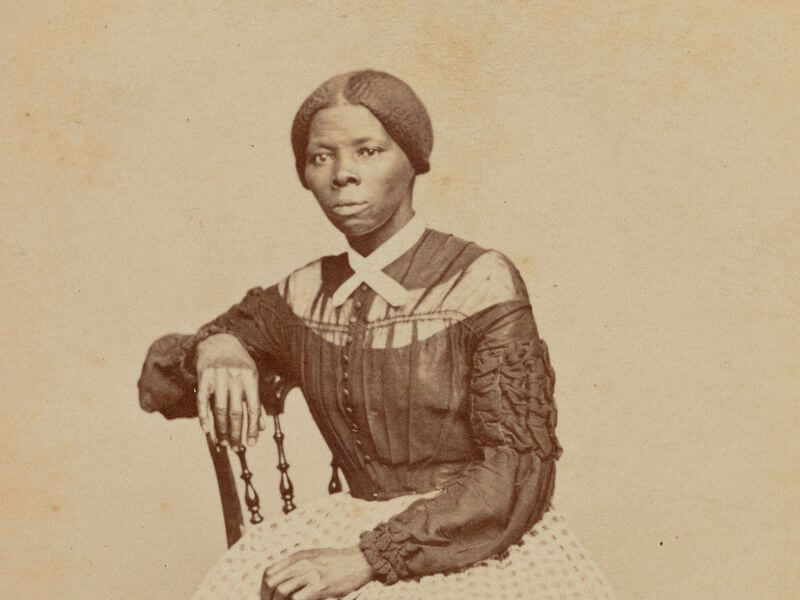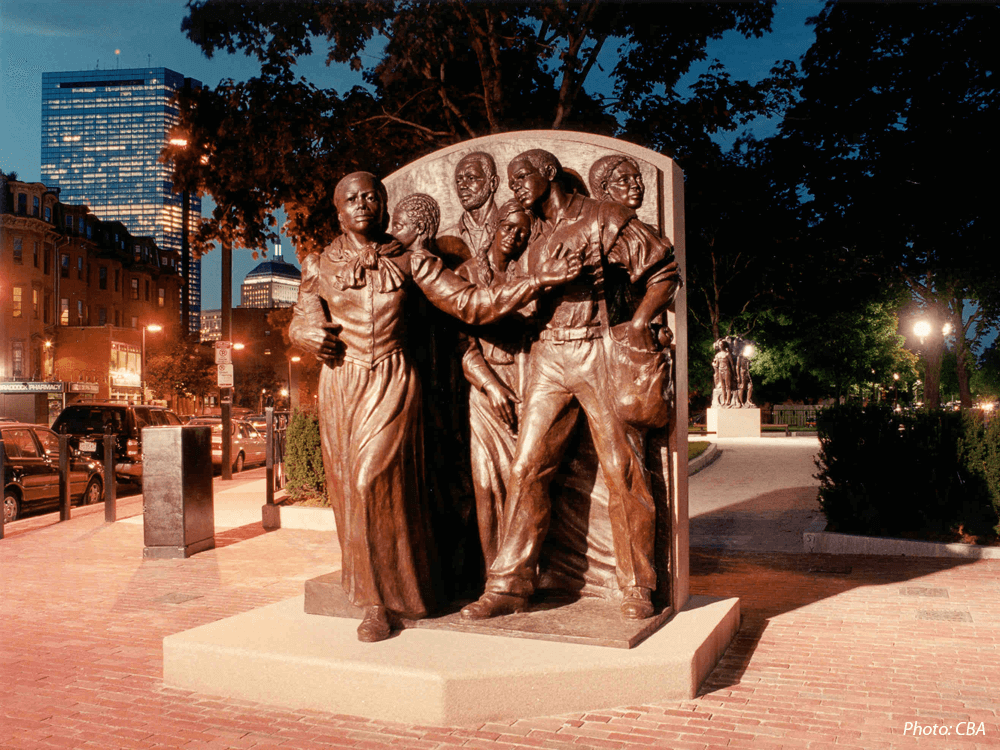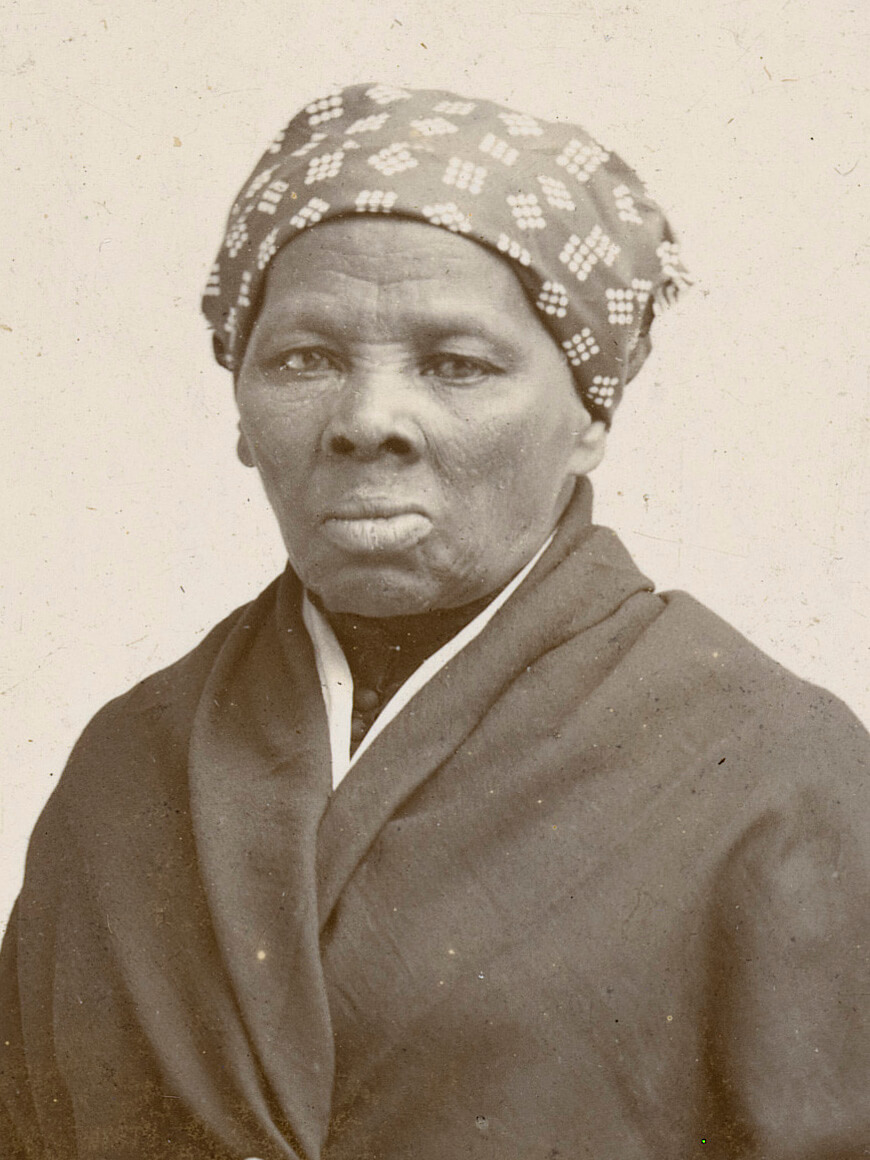Harriet Tubman
Harriet Tubman, a self-emancipated slave, remains the most famous and successful Underground Railroad conductor in United States history. She played an important role in Boston as an emancipator and activist for African Americans and women.
Born in 1822, Harriet Tubman spent her early life on plantations in Maryland where she was subjected to the brutality of the slave society that dominated the American South from the 17th through mid-19th centuries. Tubman carried the scars of slavery throughout her life. During her adolescence, she had refused to help a slave owner restrain his escaped “property” In retaliation, the man threw a two-pound weight at Tubman, striking her in the head, and causing recurring seizures, headaches, and narcolepsy for the remainder of her life.
In 1849, fearing she was about to be sold and separated from her family, Tubman self-emaciated. Although her exact escape route is unknown, it’s believed that she traveled northeast along the Choptank River and through Delaware to Pennsylvania, a journey of nearly 90 miles. Once free, Tubman spent the rest of her life working to emancipate hundreds of slaves, end slavery, and improve the lives of both African Americans and women of all races. Through those efforts, she risked her own safety, but maintained her commitment to helping others by raising money to help resettle self-emancipated slaves; working as a nurse, cook, scout, and spy in the South during the Civil War; and taking in and caring for countless needy people in her home in New York. She also spoke out publicly on issues of racial justice and gender equality, telling audiences about her journey from slave to Underground Railroad operator and abolitionist icon.
Tubman in Boston
Although Tubman never lived in Boston, she made numerous trips to Boston to advance the cause of emancipation and fight for women’s rights. She had a close connection with the city through her network of prominent abolitionist friends, including West Enders William Lloyd Garrison, William Cooper Nell, Prince Hall, and Primus Hall.
When the Civil War broke out, Tubman’s Boston connections played a critical role in her wartime activities. In 1861, she joined her fellow abolitionists who were among the first to respond to the needs of the growing numbers of slaves making their way to Union outposts in the South.
After the war, Tubman continued her quest for universal human rights. She believed in the equality of all people, Black or white, male or female, and attended numerous women’s suffrage meetings—playing an important role in the fight for women’s rights. In 1869, Tubman joined Elizabeth Cady Stanton and Susan B. Anthony to create the National Woman Suffrage Association, with the goal of amending the Constitution to include women’s right to vote.
Tubman joined her friends touring and giving speeches in New York, Boston, and Washington. She spoke about her experiences as a female slave and as the liberator of hundreds born under the bondage of slavery. She described herself during these years as “Moses,” because of the impact she had on those who found freedom.
Harriet Tubman was especially interested in the rights of African American women. In 1896, an elderly Tubman was invited as a guest speaker at the first meeting of the National Association of Colored Women. Despite her illiteracy, Tubman was a talented orator who’s speeches were popular and always left people wanting more.
In 1897, the Woman’s Journal, the white suffragist movement’s paper, held a series of receptions in Boston to honor Tubman.
The Harriet Tubman House
In the early 20th century, responding to discrimination in their own community, six Black women opened the Harriet Tubman House, which Tubman often visited. Located in the South End at 25 Holyoke Street (formerly 37 Holyoke Street), this settlement house took in young, single African American women newly arrived in Boston and provided them with food, clothing, shelter, counsel, and friendship.
The Harriet Tubman House grew into an important community institution, gathering support from neighborhood churches and women’s clubs. During one visit, the group made Tubman its Honorary President.
The institution later merged with the South End Settlement House. It continues to provide youth programs and social services, even as gentrification of Boston’s South End threatens the current building.











1 Comment